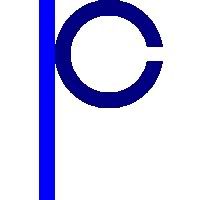Conservative Party (Sober Thought)
| Sober Thought Political Party | ||||||||||||
|---|---|---|---|---|---|---|---|---|---|---|---|---|
|
The Conservative Party of Sober Thought is a big tent party representing small and medium businesses, right-wing supporters of bigger government, nationalists, open-minded traditionalists and other conservative democrats. The party is officially secular but in addition to people who have tenuous or non-existent religious identification, it tends to attract mainstream Protestant Christians, moderate Catholics and non-Christian religious believers.
Its approach to the two other large big tent parties is more one of nuance and posturing than true disagreement. It admonishes the Moderate Party for being to wishy-washy and willing to make changes simply for the sake of making changes while simultaneously pressing Moderates to implement such symbolic policies as restoring earlier aspects of national heraldry. The Conservative Party also criticizes the Socialist Party for giving too much credence to "special interest groups" like trade unions while simultanously pushing for greater recognition, funding and power for business associations.
Its approach to other right wing parties is similarly complex. It is most similar to the Rural Alliance, differing mainly by place of residence and support for provincial rights rather than economic and social policy. Therefore, it treats the Alliance as a potential junior coalition partner which is a reliable and undemanding ally. Were centralism to gain more of a hold on the rural electorate, it is likely that the CP would absorb the RA de facto if not de jure.
In contrast, the Free Enterprise Party it is much closer in size to the Conservative Party and could eclipse the Conservatives if religious orientation and centralism became less popular. Therefore, the Conservative Party treats the FEP cordially but suspiciously, and covertly tries to keep it out of coalitions. It makes references to the "moral compass" and "traditional values" to differentiate itself from its "hedonistic" and "modernistic" counterpart-cum-rival.
The Christian Unity Party present no electoral challange to the Conservatives and it lacks the strong secularism of the FEP. In theory, this should make the CUP an attractive junior coalition party like the RA. However, Christian Unionists still favour provincial devolution and they tend to attract radicals who are prone to creating unfavourable publicity. Therefore, the Conservative Party makes warm speeches in favour of broad Christian principles (and by implication, the CUP) but avoids any official entaglement that is not absolutely necessary.
Conservatives are out of the governing coalition slightly more often than not. When in broad coalitions, they tend to take what passes for the "hawk" government departments, the Ministry of Community Prosperity and Ministry of Community Defence. When in right-wing coalitions, they tend to take the Chief Ministry and the more symbolic and "dove" Ministry of Community Connections and Ministry of Community Wellbeing.

